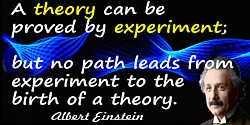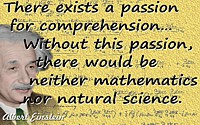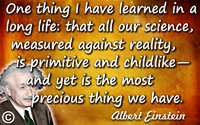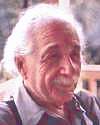 (source)
(source)
|
Albert Einstein
(14 Mar 1879 - 18 Apr 1955)
German-American physicist who developed the special and general theories of relativity. He was awarded the 1921 Nobel Prize for Physics for his explanation of the photoelectric effect.
|
Albert Einstein Quote
“Politics is more difficult than physics”
Illustrated Quote - Medium (500 x 350 px)
More Albert Einstein quotes on science >>
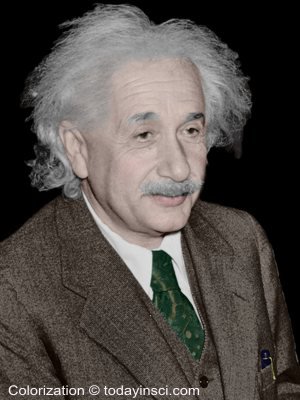
Context of Albert Einstein's quote “Politics is more difficult than physics.”

Prompted by news of Albert Einstein's death (18 Apr 1955), Grenville Clark of Dublin, New Hampshire, wrote a letter to the New York Times to share an anecdote. It was published on 22 Apr 1955. Clark went to a meeting at Princeton, N.J. in Jan 1946, which was also attended by Albert Einstein. It was a follow-up to a conference held in Oct 1945 at Dublin, N.H. People there perceived an apparent weakness of the United Nations Charter, and were discussing how to remedy it. (The new institution had been formed by the signing of the Charter on 26 June 1945, in San Francisco, California.)
The conference came hot on the heels of the newspaper coverage of the atomic bombs that had been dropped on Japan in Aug 1945, ending World War II. According to Clark, Einstein was present and voted on all the motions at the Princeton meeting, but was mostly silent. Although Einstein believed in the vital importance of world disarmament, he preferred to remain a stimulus, and was happy to leave it to others to organize the solution. After one of the sessions, another conferee told Clark about a conversation he had just had with Einstein, that he found significant:
“The professor has just said something that impressed me. I asked him, ‘Dr. Einstein, why is it that when the mind of man has stretched so far as to discover the structure of the atom we have been unable to devise the political means to keep the atom from destroying us?’ And he replied: ‘That is simple, my friend. It is because politics is more difficult than physics’.”
Note, when you see this quote citing Einstein's view of politics, that the words presented in the letter were recalled nearly a decade after Clark had heard them, and his account is also third-hand. So although in the letter, the conversation was reported within quotation marks, one should consider that they are not nessarily verbatim. No doubt the meaning remains intact, for Clark agreed with its truth. He closed by paying his respect to the passing of Einstein:
“Quite apart from his scientific genius, Professor Einstein’s feeling for all humanity made him one of the truly great men of his generation.”
Quotes on | Atom | Atomic Bomb | Difficulty | Disarmament | Physics | Politics |
- Science Quotes by Albert Einstein.
- 14 Mar - short biography, births, deaths and events on date of Einstein's birth.
- Albert Einstein - My Theory - The Times (1919).
- Geometry and Experience - Address by Albert Einstein to the Prussian Academy of Sciences (27 Jan 1921).
- Even Einstein's Little Universe Is Big Enough - New York Times article (2 Feb 1921).
- Large color picture of Albert Einstein (850 x 1000 px).
- Albert Einstein - Context of “God … integrates empirically” quote - Medium image (500 x 350 px)
- Albert Einstein - Context of “Laws of mathematics refer to reality” quote
- Albert Einstein - Context of “Laws of mathematics refer to reality” quote - with Large image (800 x 600 px).
- Albert Einstein - Context of “God … integrates empirically” quote - Large image (800 x 600 px)
- Albert Einstein - context of quote Mathematics…a product of human thought - Medium image (500 x 350 px)
- Albert Einstein - context of quote Mathematics…a product of human thought - Large image (800 x 600 px)
- Albert Einstein - context of quote “Politics is more difficult than physics” - Large image (800 x 600 px)
- Albert Einstein - context of quote “Science without religion is lame; religion without science is blind.” - Medium image (500 x 350 px)
- Albert Einstein - context of quote “Science without religion is lame; religion without science is blind.” - Large image (800 x 600 px)
- Albert Einstein - context of quote The Lord God is subtle - Medium image (500 x 350 px)
- Albert Einstein - context of quote The Lord God is subtle - Large image (800 x 600 px)
- Albert Einstein - context of quote Imagination is more important than knowledge - Medium image (500 x 350 px)
- Albert Einstein - context of quote Imagination is more important than knowledge - Large image (800 x 600 px)
- Albert Einstein - context of quote A theory can be proved by experiment - Medium image (500 x 350 px)
- Albert Einstein - context of quote A theory can be proved by experiment - Large image (800 x 600 px)
- Albert Einstein - context of quote Falling in love is not at all the most stupid thing - Medium image (500 x 350 px)
- Albert Einstein - context of quote Falling in love is not at all the most stupid thing - Large image (800 x 600 px)
- Albert Einstein - context of quote That is relativity - Medium image (500 x 350 px)
- Albert Einstein - context of quote That is relativity - Large image (800 x 600 px)
- Albert Einstein - context of quote “One thing I have learned in a long life” - Medium image (500 x 350 px)
- Albert Einstein - context of quote One thing I have learned in a long life - Large image (800 x 600 px)
- Albert Einstein - context of quote “Why is the electron negative?” - Medium image (500 x 350 px)
- Albert Einstein - context of quote “Why is the electron negative?” - Large image (800 x 600 px)
- Albert Einstein - context of quote “The formulation of a problem is often far more essential than its solution” - Medium image (500 x 350 px)
- Albert Einstein - context of quote “The formulation of a problem is often far more essential than its solution” - Large image (800 x 600 px)
- Albert Einstein - context of quote “Our exalted technological progress” - Medium image (500 x 350 px)
- Albert Einstein - context of quote “Our exalted technological progress” - Large image (800 x 600 px)
- Albert Einstein - context of quote “There exists a passion for comprehension” - Medium image (500 x 350 px)
- Albert Einstein - context of quote “There exists a passion for comprehension” - Large image (800 x 600 px)
- Albert Einstein - context of quote “An equation is for eternity” - Medium image (500 x 350 px)
- Albert Einstein - context of quote “An equation is for eternity” - Large image (800 x 600 px)
- Subtle Is the Lord: The Science and the Life of Albert Einstein, by Abraham Pais. - book suggestion.
- Booklist for Albert Einstein.


